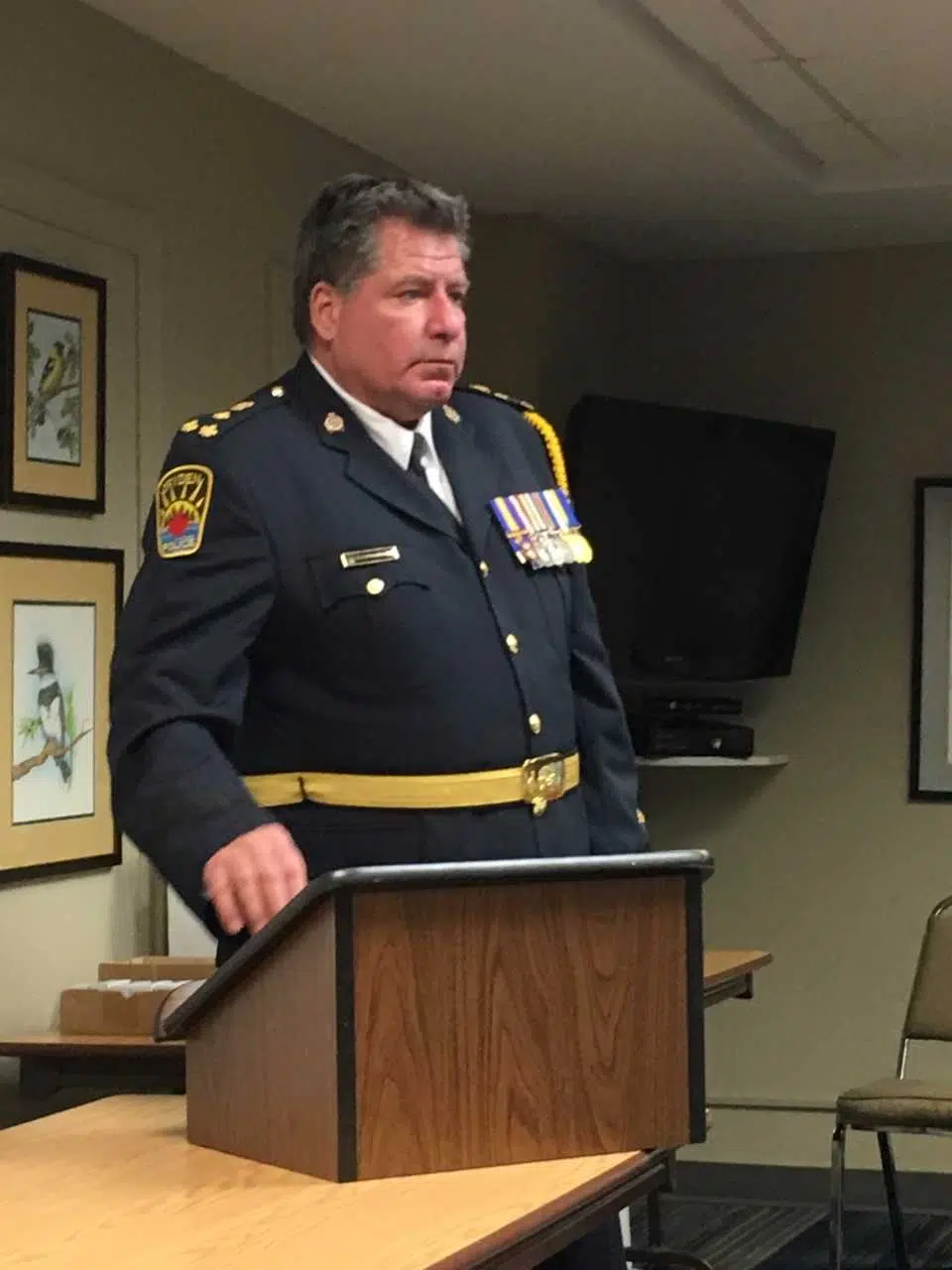With the peak of the holiday season now here, new impaired driving rules are now in place.
Effective Tuesday, Police across Canada have the ability to conduct a mandatory roadside alcohol breath test on any driver they lawfully pull over.
Dryden Police Chief Doug Palson says anytime and anything that can be done to help prevent people from getting behind the wheel while impaired is ultimately a good thing.
Palson says he suspects some of the law will be challenged and tested but says the potential for the mandatory alcohol screening, increases a persons risk of getting caught if they are driving impaired.
He stresses the law should resonate with people that the tools and legislation are now in place to curb the dangerous activity.
The new law also bumps up the maximum penalties for many alcohol-impaired driving offences.
Formerly, the mandatory minimum fines were: $1,000 for first offence, 30 days imprisonment for second offence, and 120 days in jail for a third offence.
These are the penalties now:
-First offence, with blood alcohol content of 80-119 mg: mandatory minimum $1,000 fine
-First offence, with blood alcohol content of 120-159 mg: mandatory minimum $1,500 fine
-First offence, with blood alcohol content of 160 mg or more: mandatory minimum $2,500 fine
-First offence, but refuse to be tested: mandatory minimum $2,000 fine
-Second offence: mandatory minimum 30 days imprisonment
-Third or more offence: mandatory minimum 120 days imprisonment
-Maximum penalties for impaired driving causing no bodily harm or death: summary conviction carries two years less a day imprisonment, indictment carries 10 years imprisonment
-Maximum penalties for impaired driving causing bodily harm: Summary conviction for less severe injuries carries two years less a day imprisonment, indictment carries 14 years imprisonment
-Maximum penalty impaired driving causing death: life imprisonment
Bill C-46 coincides with the new law legalizing Cannabis.
However, Palson says the strict impaired driving rules won’t really impact drug screening in the community.
Palson says there is an instrument in place for screening pot, but it doesn’t detect particular levels, and they aren’t using that machine right now.
He notes it will be business as usual and officers will have to formulate reasonable grounds to demand a standard field sobriety test.










